|
AAHB 2022 Scientific Meeting |
 Jamilia J. Blake, PhD
Jamilia J. Blake, PhD
Texas A & M University
Title: When Worlds Collide: School and Public Health Policy (Mis)Alignment and Implications for Student Health
Authors: Jamilia Blake, Ph.D., Texas A&M University & Samia Tasnim, MPH, Texas A&M University
Dr. Blake is a Licensed Psychologist and Professor at Texas A&M University. Her research broadly focuses on investigating and ameliorating child and adolescent health and educational disparities through an interdisciplinary lens. A such her research follows three interrelated themes with health equity at the center of these areas: peer directed aggression, bullying, and victimization of socially marginalized youth, the disparate impact of school discipline on Black females, and the impact of school health interventions on youth’s physical and behavior health and academic achievement. Dr. Blake's work has been featured in the New York Times, Huffington Post, on NPR, and CBS.
Learning Objectives:
- Examine alignment between school district and public health policy in response to COVID-19.
- Explore health implications for students
 W. Timothy Coombs, PhD
W. Timothy Coombs, PhD
Texas A & M University
Title: Misinformation during the Pandemic: The Numbing of Science
Timothy Coombs (PhD from Purdue University in Public Affairs and Issues Management) is a full professor in Department of Communication at Texas A&M University. He has received the 2002 recipient of Jackson, Jackson & Wagner Behavioral Science Prize from the Public Relations Society of America, the 2013 Pathfinder Award from the Institute of Public Relations in recognition of his research contributions to the field and to the practice, and was the 2014 winner of the Dean’s Distinguished Researcher Award in the College of Sciences at UCF. Dr. Coombs has won multiple PRIDE awards from the Public Relations Division of the National Communication Association for both books and research articles. He is also a member of the Arthur W. Page Society. Dr. Coombs was a Fulbright Scholar in Estonia in the Spring of 2013. In the Fall of 2013 he was the named NEMO Professor at Lund University, Helsingborg Campus. In 2015 he was invited to lecture at Tsinghua University, Beijing China. In 2015 he was designated an honorary professor in the Department of Business Communication at Aarhus University. He is also the current editor for Corporation Communication: An International Journal. He currently holds the George T. and Gladys H. Abell Professorship in Liberal Arts.
Learning Objectives:
- To differentiate between disinformation and misinformation.
- To understand the appeal of misinformation and disinformation.
- To appreciate the difficulty in displacing misinformation and disinformation.
 Chandra L. Ford, PhD, MPH, MLIS
Chandra L. Ford, PhD, MPH, MLIS
Professor, Department of Community Health Sciences
Founding Director, Center for the Study of Racism, Social Justice & Health
Jonathan & Karin Fielding School of Public Health
University of California at Los Angeles
Title: COVID, Stigma and Racism: An Opportunity to Reimagine Surveillance
Dr. Chandra L. Ford is Professor of Community Health Sciences and Founding Director of the Center for the Study of Racism, Social Justice and Health in the UCLA Fielding School of Public Health. She is lead editor (with Derek Griffith, Marino Bruce and Keon Gilbert) of Racism: Science & Tools for the Public Health Professional (APHA Press, 2019), which was named an Outstanding Academic Title for 2020 by the American Library Association’s Choice magazine. She earned a doctorate in Health Behavior from the UNC Gillings School of Global Public Health and completed postdoctoral fellowships in Social Medicine (at UNC School of Medicine) and Epidemiology (at Columbia University’s Mailman School of Public Health), the latter as a W. K. Kellogg Foundation Kellogg Health Scholar.
Her work offers conceptual and methodological tools for studying racism as a public health problem. She originated (with Collins Airhihenbuwa) the Public Health Critical Race Praxis, which is an approach for applying Critical Race Theory empirically. Much of her empirical work examines inequities in HIV testing, care and prognoses, or documents barriers to services among LGBTQ survivors of intimate partner violence. Her work has been published in the American Journal of Public Health, the Boston University Law Review, Ethnicity & Disease, Health Promotion Practice, JAIDS, Social Science & Medicine, and other peer-reviewed journals.
Dr. Ford has received many teaching awards and several notable honors, including the 2020 Wade Hampton Frost Award from the Epidemiology Section of the American Public Health Association, a Lifetime Achievement Award from the Association of Black Women Physicians, a TrueHero Award from TruEvolution and the 2019 Paul Cornely Award from the Health Activist Dinner group.
Dr. Ford serves the profession extensively. In 2016, she served on the National Academy of Medicine’s Committee on Community-based Solutions to Promote Health Equity in the United States and was named co-chair of the Committee on Science of the American Public Health Association’s Anti-Racism Collaborative. She is a longstanding member of the American College of Epidemiology’s Minority Affairs Committee and a former president of the Society for the Analysis of African American Public Health Issues. In addition, she has been involved with the Black Radical Congress and remains involved with the Black Coalition Fighting Back Serial Murders.
[*] During the COVID-19 pandemic
Learning Objectives:
By the end of this session participants should be able to
- List one way traditional public health surveillance may inadvertently harm minoritized communities
- Name one type of racism that may contribute to COVID inequities
- Explain one way racism can exacerbate COVID inequities
|
Professional Development and Mentoring Council Workshop Speakers & Judy K. Black Awardee Presentation
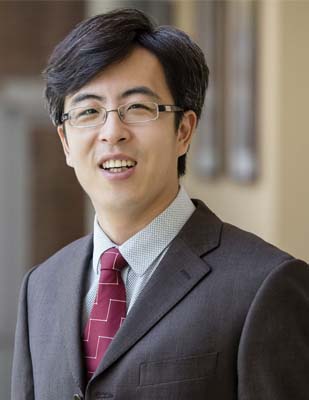 Ruopeng An, PhD
Ruopeng An, PhD
Associate Professor
Brown School
Washington University in St. Louis
Title: “Incorporating Artificial Intelligence in Public Health Teaching and Research”
Dr. Ruopeng An is an Associate Professor at the Brown School, Washington University in St. Louis. An conducts research to assess environmental influences and population-level interventions on weight-related behaviors and outcomes throughout the life course. In particular, his work assesses socioeconomic determinants and policies that affect individuals’ dietary behavior, physical activity, sedentary lifestyle, and adiposity in children, adults of all ages, and people with disabilities. His research aims to develop a well-rounded knowledge base and policy recommendations that can inform decision-making and the allocation of resources to combat obesity.
An’s research has been funded by federal agencies and private foundations. He serves as a research grant reviewer for NIH, HHS, NSF, and French National Research Agency. An has wide teaching and methodological interests, including applied artificial intelligence (machine and deep learning), quantitative policy analysis (causal inference, cost-benefit and cost-effectiveness analysis, and microsimulation), applied econometrics and regression analysis, systematic review and meta-analysis, and data storytelling.
An’s numerous publications (over 180) include articles in journals such as the American Journal of Preventive Medicine, Obesity Reviews, Social Science & Medicine, and Pediatric Obesity. His research has been widely featured in media, such as TIME, New York Times, Los Angeles Times, Washington Post, Chicago Tribune, Boston Globe, Reuters, USA Today, Bloomberg, Forbes, Harvard Health, Atlantic, Guardian, CBS, FOX, ABC, NPR, NBC, and CNN. In 2015, he received the Judy K. Black Early Career Research Award from the American Academy of Health Behavior. In 2018, he was elected as a Fellow of the American College of Epidemiology.
Brief Summary: Artificial intelligence (AI), characterized by machine and deep learning (neural networks), has been increasingly recognized as an indispensable tool in health sciences, with relevant applications expanding from disease outbreak prediction to medical imaging and from patient communication to behavioral modification. However, gaps in adopting and utilizing those modern data analytic techniques prevail in public health. This workshop aims to provide an overview of the basic concepts and applications of AI in the fields of public health, medicine, and beyond. After attending the workshop, participants will be able to (1) learn a brief history, key definitions and essential concepts, popular applications, algorithm biases, and misperceptions about AI; (2) learn to implement an end-to-end machine learning project using Python and Scikit-Learn in Google Colab; and (3) familiarize with a rich set of resources (e.g., textbooks, online courses, computational platforms, software packages, and datasets) that can facilitate learning artificial intelligence.
Learning Objectives:
Workshop participants will:
- learn a brief history, key definitions and essential concepts, popular applications, algorithm biases, and misperceptions about artificial intelligence (i.e., machine learning and deep learning or neural network models);
- learn to implement an end-to-end machine learning project using Python and Scikit-Learn in Google Colab; and
- familiarize with a rich set of resources (e.g., textbooks, online courses, computational platforms, software packages, and datasets) that can facilitate learning artificial intelligence.
Sponsored by AAHB Fellows
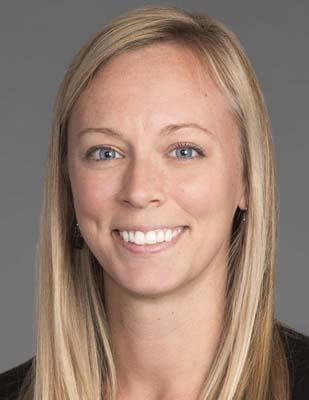 Jessica King Jensen, PhD
Jessica King Jensen, PhD
Department of Health & Kinesiology
University of Utah
Title: Tobacco Pack Size Policies and their Impact on Public Health
Jessica King Jensen is an Assistant Professor in the Department of Health & Kinesiology at the University of Utah and an Affiliate Member of the Huntsman Cancer Institute. Dr. Jensen received her BS (2007) and MS (2008) in Health Education and PhD in Public Health (2016) from the University of Florida, and completed a postdoctoral fellowship in tobacco regulatory science at Wake Forest School of Medicine (2019).
Dr. Jensen’s research evaluates tobacco policies and interventions, motivated by themes of social justice and equity. Tobacco use remains the leading preventable cause of disease and death; a legal substance that, when used as intended, kills half of those who use it. Rates of use and the associated health outcomes are disproportionately high among people with disabilities, people living in poverty, LGBTQ+ populations, and racial and ethnic minority populations. Dr. Jensen’s goal is to inform policies that equitably reduce tobacco use and the associated negative health outcomes.
Dr. Jensen has been awarded over $1M in extramural funding as PI to support her research. Ongoing studies include examining how cigar pack policies influence use among sociodemographic and use groups and evaluating the impact of a peer health coaching program designed to prevent e-cigarette and cannabis use among college students.
Outside of work, Dr. Jensen enjoys exploring the outdoors, keeping her plants alive, and cheering for the Florida Gators.
Winning Abstract: Reasons for Purchasing Tobacco and E-Cigarettes Online
Authors: Jessica King Jensen, Anna Bilic, Kayla Rebentisch, and Julie W Merten
Learning Objectives:
- Participants will be able to identify the reasons why people purchase tobacco products online.
- Discuss how internet sales may be circumventing local, state, federal restrictions on price and taxes to provide low-cost products to consumers.
Zoom Presenters
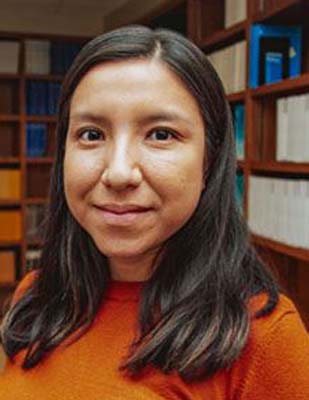 Gabriela Ortiz
Gabriela Ortiz
Applied Econometrician
Stata Representative
Gbriela Ortiz
Principal Statistician and Software Developer at StataCorp and the primary developer of Stata's meta-analysis suite.
Title: Performing meta-analysis in Stata
Gabriela Ortiz is an Applied Econometrician at StataCorp. She holds a bachelor's degree in psychology from the University of California, Davis, and a master's degree in economics from California State University, Long Beach. Gabriela is a primary author of Stata's reporting manual and has contributed to the development of each of the reporting features. She also developed and regularly teaches Stata's introductory webinars. Gabriela will be presenting today on how to perform meta-analyses using Stata.
Gabriela is joined today by Houssein Assaad, who will be sitting in and helping answer questions. Dr. Assaad has a PhD degree in statistics from the University of Texas at Dallas, and is a Principal Statistician and Software Developer at StataCorp and the primary developer of Stata's meta-analysis suite.
Learning Objectives:
- Learn the tools in Stata 17 for performing meta-analysis.
- Learn how to compute effect sizes and summarize meta-analytic results in tables and in forest plots. Also, learn to perform cumulative meta-analysis and explore how the overall effect size is influenced by individual studies.
- Learn ways to assess heterogeneity, such as generating Galbraith plots and L'Abbé plots. Additionally, learn how subgroup analysis and meta-regression can be used to determine whether moderators explain the observed heterogeneity. Also, learn to perform multivariate meta-regression for studies reporting multiple effect sizes.
- Learn how to explore and address small-study effects. Learn to create funnel plots, perform tests for small-study effects, and perform trim-and-fill analysis of publication bias.
Zoom Moderator
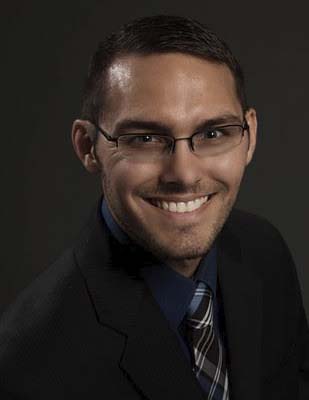 Matthew Rossheim, PhD, MPH
Matthew Rossheim, PhD, MPH
University of North Texas
Health Science Center at Fort Worth
I completed a PhD program in Public Health Sciences at the University of North Texas Health Science Center, as well as a BA in Economics and MPH with a concentration in Social and Behavioral Sciences at the University of Florida. Prior to joining the UNTHSC School of Public Health as a faculty in 2021, I was a faculty member at George Mason University.
My research is designed to help guide policies that prevent underage drinking, excessive alcohol use, drinking-and-driving, tobacco use initiation, and exposure to secondhand smoke. A substantial proportion of my work focuses on legal substances commonly used by young people, including electronic nicotine products and “supersized alcopops,” which contain very high alcohol content. Due to my extensive research on the topic, I am considered as one of the world’s leading experts on supersized alcopops and have been cited in legislation limiting the alcohol content of these products across Canada. I have authored more than 50 articles in peer-reviewed journals, and I am dedicated to conducting innovative research that is useful for improving public policies.
Sponsored by Stata
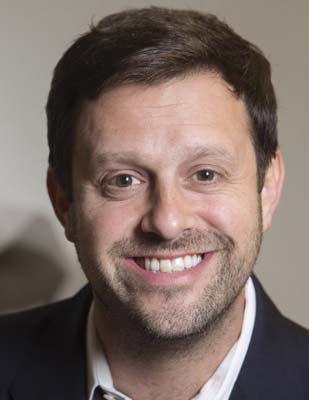 Matthew Lee Smith, PhD, MPH, CHES, FGSA, FAAHB
Matthew Lee Smith, PhD, MPH, CHES, FGSA, FAAHB
Center for Population Health and Aging
Department of Environmental and Occupational Health
School of Public Health
Texas A&M University
Title: Keys to Quality Mentorship and Productive Collaborations: Lessons Learned from AAHB Scholars
Dr. Smith is an associate professor in the Texas A&M School of Public Health. As an evaluator and interventionist, his research interests surround health risk across the life-course and evidence-based solutions for older adults. Dr. Smith has devoted his career to creating synergistic partnerships and initiatives to encourage positive lifestyles and reduce rates of preventable morbidity and mortality. His translational research and evaluation experience bridge research and practice issues across the health care sector, aging services network and public health system. Dr. Smith has served as the AAHB Research Scholars Mentorship Program (RSMP) Director since 2016.
This session will focus on the accomplishments of the 2021 Cohort of the AAHB Research Scholars Mentorship Program (RSMP). This 12-month program was developed as a mechanism to facilitate high-quality mentorship interactions among junior and seasoned investigators within the Academy. Each year, Mentee-Mentor Pairs work together to develop skills, gain experience, and ultimately promote productive research-driven careers that exude excellence in health behavior research.
Learning Objectives:
During the session, the 4 mentee-mentor pairs will share their activities, successes, and challenges over the past year and reflect about their Mentee-Mentor relationships. At the end of this session, attendees will be able to:
- Attendees will increase their familiarity with the scope and potential benefits of participation in the AAHB RSMP.
- Attendees will be able to describe several specific ways in which mentoring can promote the development and scholarship of early career professionals.
- Attendees will be able to identify at least three strategies for optimizing mentoring relationships.
Sponsored by AAHB Fellows
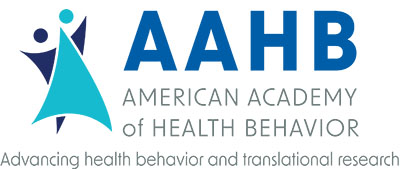

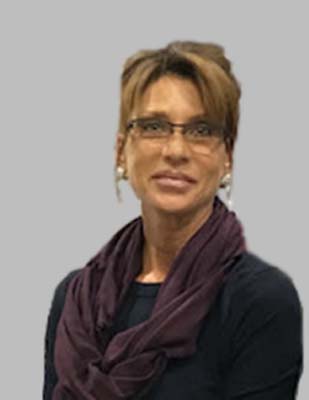 Myriam Forster, PhD, MPH
Myriam Forster, PhD, MPH Derek M. Griffith, PhD
Derek M. Griffith, PhD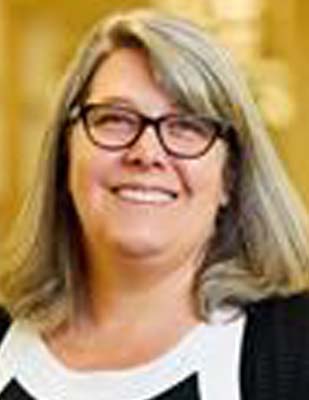 Laura M. Koehly, PhD
Laura M. Koehly, PhD Scott Leatherdale, PhD, FAAHB
Scott Leatherdale, PhD, FAAHB